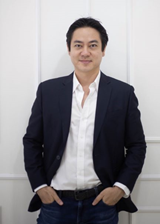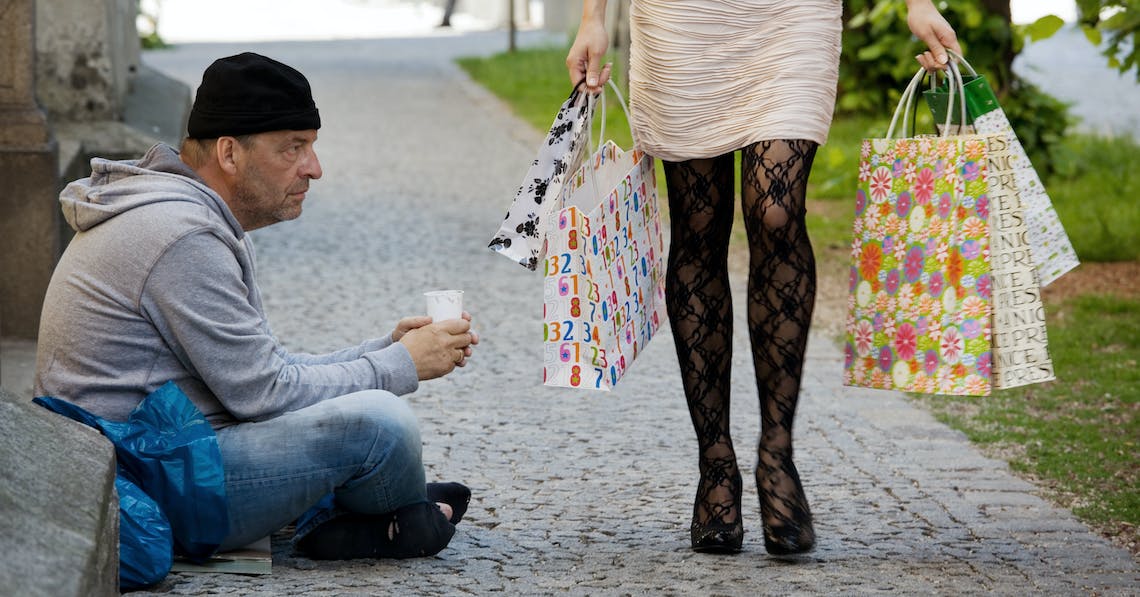Starring Matt Damon, directed by South African Neill Blomkamp, Elysium is set in 2154 where there are two classes of people. The 99% of earth’s inhabitants live in overpopulated cities in abject poverty, and the top 1% living on Elysium – a space habitat in earth’s orbit, enjoying private pools and cocktail parties in villas. Crucially, Elysium has medical pods (called Med-Bays) that can cure all diseases, reverse ageing, and regenerate body parts. The elites don’t age and are forever healthy. The earth’s residents are dying in droves, being denied access to Med-Bays. Many have risked their lives and perished smuggling themselves onto Elysium to cure their daughters of cancer, leukemia, and other common illnesses.
The film’s plot and the reality aren’t that different when you think about it. Substitute Covid-19 vaccines for Med-Bays, and we have the 2021 Elysium. Citizens from poorer countries like India to Indonesia suffer high death tolls, dumping their dead in the rivers, while the rich countries enjoy Bruce Springsteen Broadway concerts and soccer matches.
The South African riots and lootings in KwaZulu-Natal and Gauteng provinces, triggered by the jailing of former President Jacob Zuma, have been on my mind lately. At least 250 dead; 2,500 arrests on charges of theft and vandalism; businesses looted; factories burned; food hoarding; 25,000 army troops deployed. (A decade ago, I had considered attending the University of Cape Town in South Africa, whose five alumni had won Nobel Laureates.) South Africa has been through a lot. And that’s an understatement. Colonised by the Dutch, then the British, followed by the White Afrikaans’ National Party’s apartheid policies. Then the election victory of African National Congress’s (ANC) led by Nelson Mandela, after his 27 years imprisonment.
Since then, the ANC’s MP seats have steadily declined, wreaked by corruption, state capture, rent-seeking, and in-fighting. Indeed, not much different from Thai political parties and political situation.
Despite the end of apartheid, segregation and economic inequality persist today in South Africa. Cape Town’s Strand and Nomzamo areas are only metres apart but the two neighbours could conceivably be in two separate nations. Strand is 80% white, has access to piped water and internet. Nomzamo, just several metres away, is 92% black African, with only 49% water access and 24% internet connectivity. Johannesburg, as are all other major cities there, is highly segregated. Whites, Black Africans, coloureds/mixed, and Indians/Asians live in different neighbourhoods, with the highest real estate value in white areas, driven by differential economic opportunities. Think of Klong Toey slum in Bangkok adjacent to luxury condos and shopping malls. Think of a Thai grandma living in a tin shed washing her dishes in Chao Phraya River, while across the river is a Lamborghini driver with his hot girlfriend attends a hi-so Thong Lor party. That is your South African segregation in Bangkok.
Here is another revealing statistics: The amount of money spent on private security there is larger than its national security budget. There are 9,000 registered private security companies in South Africa; 450,000 registered active guards and 1.5 million registered but inactive guards. That’s more than the total South African police and military forces combined. For every one South African police officer there are 2.57 private security guards. South Africa is listed as the world’s top 10 nations with highest homicide and crime rates. What this means is that since their government cannot guarantee the safety of its population and their assets, the locals who can afford it are taking matters into their own hands. I used to rent a room with a South African family in Australia. They told me it was not that uncommon to be robbed at gunpoint in your car at a traffic intersection. Getting mugged at knife point, your car hijacked, your home broken into is statistically also not uncommon.
Nelson Mandala was the world’s darling. But in reality, he was no different from today’s Burmese Aung San Suu Kyi. Powerless to effect permanent change. The ANC has done a disservice to its country in letting Jacob Zuma rule for nine years. He faced multiple counts of corruption charges, racketeering, fraud, and money laundering, not to mention dozens of rape allegations. His presidency had cost South Africa’s economy an estimated $83 billion (1 trillion rand), a staggering amount. With his ill-gotten wealth he had indeed created a patronage for himself and his allies. His successor Cyril Ramaphosa won’t accomplish much either, despite his effort to distance himself from Zuma’s faction. So too, will the opposition Democratic Alliance (DA) in winning votes outside its stronghold Western Cape province. Politically, it is a mess over there.
There is a lesson for Thailand here. Covid-19 will consolidate capital around the world, destroy more economies than lives, pushing middle-class families into lower-class. The latter group, in turn, will be pushed into poverty. Segregation, neither by ethnicity nor by tribes, but by wealth will accelerate. Gated communities are common here in Thailand, with unarmed guards. But that may not be the case forever. Unless economic dividends are better shared, and the political class united with a long-term view, Thailand risks venturing onto the South African path – a failed state, with high crime and high unemployment, where a 1/3 of young people can’t find employment. Every riot would become a looting opportunity for the have-nots. When national security is outsourced and when the poor cannot access “Med-Bays” that is when we will have reached a tipping point.
The recent Thai protests are very mild compared to South African’s. And I hope to never see Thailand being the next South Africa.
So, what is the South Africa-Thailand connection? What do they have in common? Both need to get over idolisation of their respective leaders, and focus on building strong institutions. Institutions that will outlast them. Say, the CEO of KFC dies tomorrow. Will there be fried chicken available in all of KFCs the next day? You bet, precisely because they have a system and operation in place. No matter who the head is, the operations and supply chain will churn as per usual. Unlike in South Africa when the head goes, chaos and confusion ensue.

